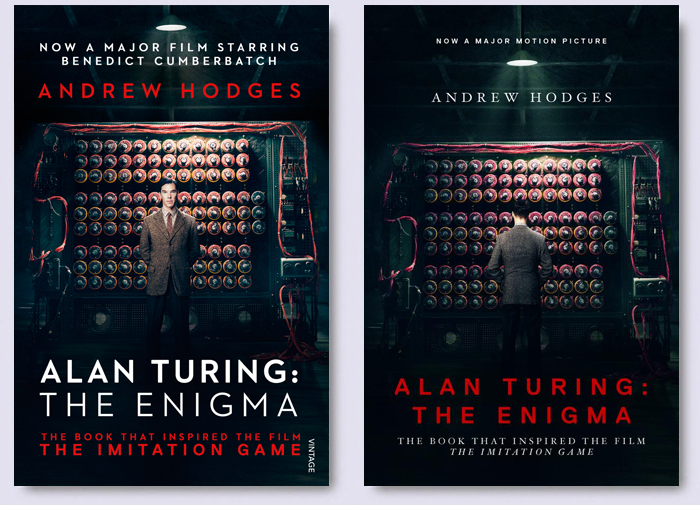Andrew Hodges‘s ALAN TURING: THE ENIGMA has been named as one of the best physical science books of 2014 by the Guardian newspaper.
In case you are unfamiliar with the book, here is the synopsis…
It is only a slight exaggeration to say that the British mathematician Alan Turing (1912-1954) saved the Allies from the Nazis, invented the computer and artificial intelligence, and anticipated gay liberation by decades — all before his suicide at age forty-one. This acclaimed biography of the founder of computer science, with a new preface by the author that addresses Turing’s royal pardon in 2013, is the definitive account of an extraordinary mind and life.
Capturing both the inner and outer drama of Turing’s life, Andrew Hodges tells how Turing’s revolutionary idea of 1936 — the concept of a universal machine — laid the foundation for the modern computer and how Turing brought the idea to practical realisation in 1945 with his electronic design. The book also tells how this work was directly related to Turing’s leading role in breaking the German Enigma ciphers during World War II, a scientific triumph that was critical to Allied victory in the Atlantic. At the same time, this is the tragic account of a man who, despite his wartime service, was eventually arrested, stripped of his security clearance, and forced to undergo a humiliating treatment program — all for trying to live honestly in a society that defined homosexuality as a crime.
Published in the UK by Vintage Books and in the US by Princeton University Press, ALAN TURING: THE ENIGMA is also the inspiration behind THE IMITATION GAME, a film starring Benedict Cumberbatch and Keira Knightley, which has been generating plenty of Oscars and other award buzz. (The covers above are for the UK and US tie-in editions.)
In related news, and of interest to Turing fans everywhere, Andrew Hodges has penned some catalogue copy for a rare, secret notebook of the mathematician’s which will be sold at auction in April 2015: ‘Alan Turing was parsimonious with his words and everything from his pen has special value. This notebook shines extra light on how, even when he was enmeshed in great world events, he remained committed to free-thinking work in pure mathematics.’

